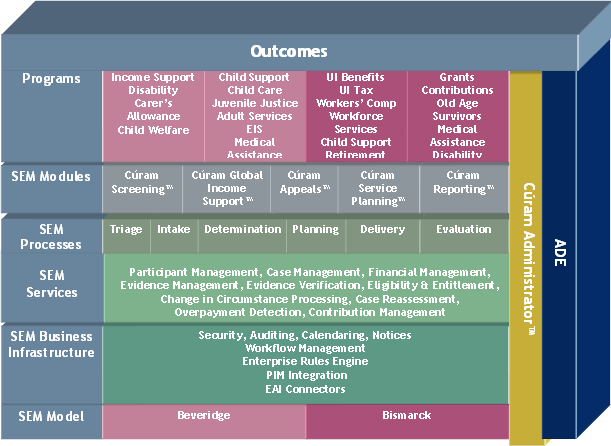IBM Cúram Social Program Management™ is designed specifically for human services, health, labor, social security, and military and veterans' organizations - collectively referred to as social enterprises. The IBM Cúram Social Program Management™ solution is comprised of multiple layers, each designed to address specific and unique business and technical requirements of social enterprises.

By supporting both the Beveridge and Bismarck program delivery models, IBM Cúram Social Program Management™ provides the foundation required to administer benefits and services to support both needs-based and contribution-based programs. The Business Infrastructure is designed to provide support for many of the common processes found throughout the enterprise including security, workflow, and integration tools.
A Services layer includes the common services that support the service and benefit delivery processes for social enterprises. These services include industry-leading integrated case management and integrated eligibility and entitlement, as well as participant management, financial management, contribution management, and evidence management.
Common across social enterprises, the SEM processes define the mission-critical activities performed in the delivery of services and benefits. These common processes include: Triage, Intake, Determination, Planning, Delivery, and Evaluation. Each of the processes is supported by through supplied business processes based on global best practices.
A series of application modules are designed to support common business functionality and global rules and evidence required to address program delivery. For example, Cúram for Global Income Support™ supports the collection, management, application, and processing of business rules and evidence associated with income support programs world-wide.